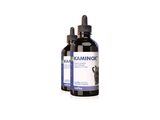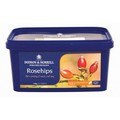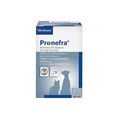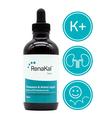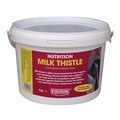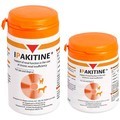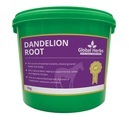Healthy kidneys are responsible for many different tasks most importantly filtering the blood of toxins and excreting them in urine. If the kidneys are not functioning properly then this can result in a variety of problems. Any condition which stops the kidneys performing properly is referred to as kidney or renal disease. It means some damage has occurred but there is still functional tissue left. The amount of damage is variable and veterinary intervention can slow the progression of the disease. In renal failure, the kidneys have stopped working altogether and is far more serious.
Kidney disease can be acute or chronic. Acute kidney disease is sudden damage to the kidneys usually caused by ingestion of toxins (ie antifreeze), some medications, infection and blockages to the blood flow into the kidney and the urine flow out. Depending on the initial cause acute kidney disease can be treatable and reversed. Chronic kidney disease (CKD) is a progressive loss of kidney function over months or years and is irreversible although progression can be slowed with diet and medication.
Cats:
CKD is common in cats. Symptoms of CKD are drinking and urinating excessively, lethargy, weight loss, inappetance, vomiting, smelly breath and ulcers in the mouth.
Diagnosis usually involves blood and urine tests to evaluate the concentrations of waste products and other components that healthy kidneys normally filter or regulate.Less commonly the vet may do an ultrasound and take a biopsy for microscopic evaluation. Given the potential for hypertension (high blood pressure) in cats with CKD, measurement of a cat’s blood pressure is also an important part of the medical evaluation for this disease.
Treatment of CKD aims to counteract the problems generated by the loss of kidney function such as minimizing the build up of toxic waste products in the bloodstream, maintaining adequate hydration, addressing disturbances in electrolyte concentration, supporting appropriate nutrition, controlling blood pressure, and slowing the progression of kidney disease.There are a few drugs (anti-hypertension and ACE inhibitors) that your vet may prescribe as treatment however dietary modification is equally important. There are specific renal diets available which limit phosphorus and are low in sodium known to prolong the life of the kidneys and high in quality protein to prevent weight and muscle loss associated with CKD. There are also phosphate binding supplements such as Ipakitine available though a renal diet should always be tried first. Some vets may even suggest administration of fluids subcutaneously if they deem it to be helpful.
The earlier a cat is diagnosed with CKD and treatment started the better the prognosis with respect to quality of life and survival. However some cats respond better than others to treatment and so the outcome can be variable.
Dogs:
Kidney disease is much less common in dogs than cats. More often we see the acute form due to ingestion of toxins such as antifreeze and rat poison or eating certain foods like raisins or grapes. There are also diseases such as Leptospirosis that can cause kidney disease in unvaccinated dogs. However some dogs do get CKD which is usually related to breed and genetics.
Clinical signs of acute Kidney disease in dogs are:
- Not eating
- Drooling
- Vomiting
- Bloody diarrhoea
- Black-tarry stool
- Lethargy
- Bad breath (e.g., halitosis secondary to build up of kidney poisons)
- Excessive thirst and urination
- Decreased urinations
- Seizures
- Coma
- Death
Veterinary treatment and evaluation includes:
- Decontamination (e.g., inducing vomiting and giving activated charcoal to bind the poison from the stomach and intestines)
- Daily blood work to monitor kidney function
- Aggressive intravenous (IV) fluids
- Anti-vomiting medication
- Urine monitoring
- Symptomatic supportive care
Typically, hospitalisation for 24-72 hours is necessary, depending on the kidney toxin. The prognosis is almost always better when the poisoning is identified sooner, rather than later. Once clinical signs of poisoning are seen, the cost and duration of hospitalization is more costly and longer, and the prognosis is worse.
Horses:
Kidney disease is even less common in horse than dogs. Acute renal failure (ARF) can rarely be caused by medications such as non-steroidal anti-inflammatories and antibiotics used to treat other conditions in horses. Trauma, infection, heatstroke, haemorrhage, consumption of acorns and toxic plants, can also cause ARF.
Horses with ARF may show marked depression, anorexia, fail to produce urine and become ataxic. As with dogs and cats diagnosis tends to be based on clinical history, bloods, urinalysis and sometimes ultrasonography. Treatment of ARF is intensive fluid therapy, electrolyte supplementation and diuretics if the horse is not producing urine.
Horses that survive an acute episode can recover fully or might have persistent kidney damage that is considered irreversible chronic kidney disease (CKD). In early or less severe cases of CKD, increased drinking and urination could be the only signs noted. As CKD progresses horses suffer weight loss and often have decreased exercise capacity, a dull hair coat, and mild oedema (swelling) between their forelimbs. Because the kidneys aren't filtering the blood properly when affected by CKD, waste products can build up in the circulation causing ulcers in the mouth, stomach, and intestines.
CKD isn't curable but with correct management horses might live comfortably for months or sometimes years. Management includes:
- Feeding grass hays rather than calcium-rich legumes such as alfalfa.
- Maintaining bodyweight. Access to good pasture is the best way to do this.
- Supplementing with omega 3 fatty acids.
- Regular blood tests to monitor kidney function
Written by: Dr. Sophie Meers BVSc MRCVS


